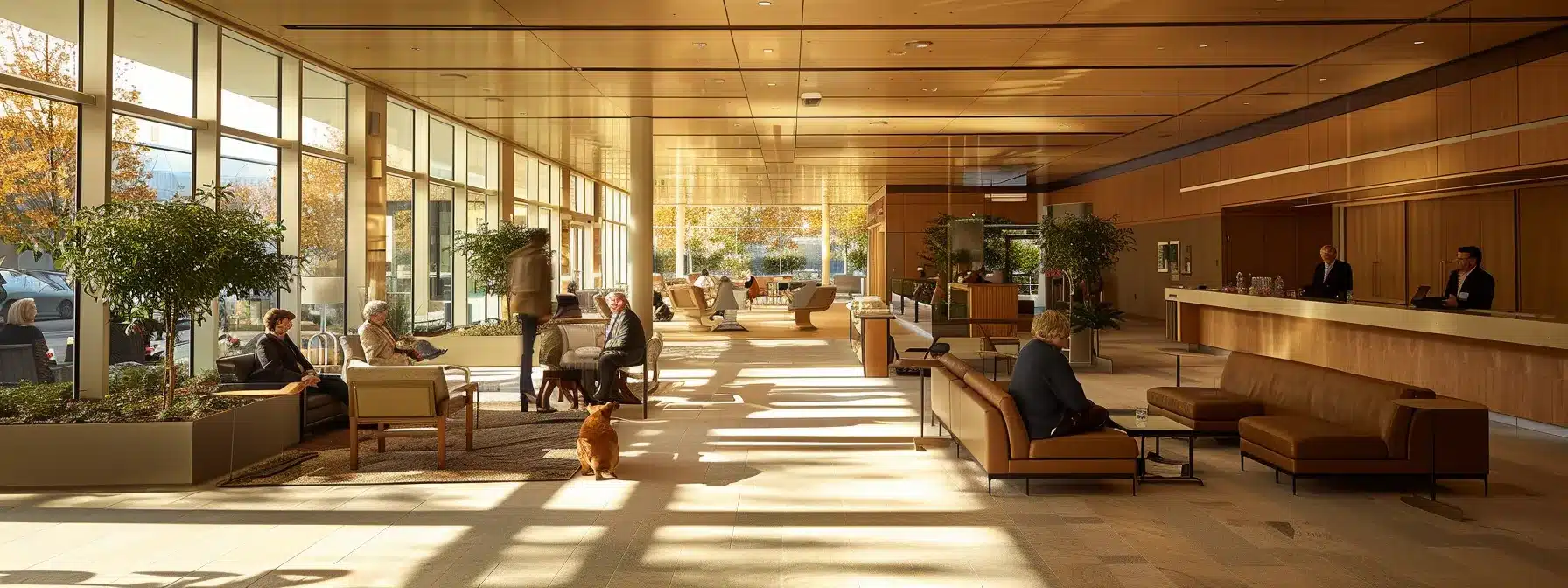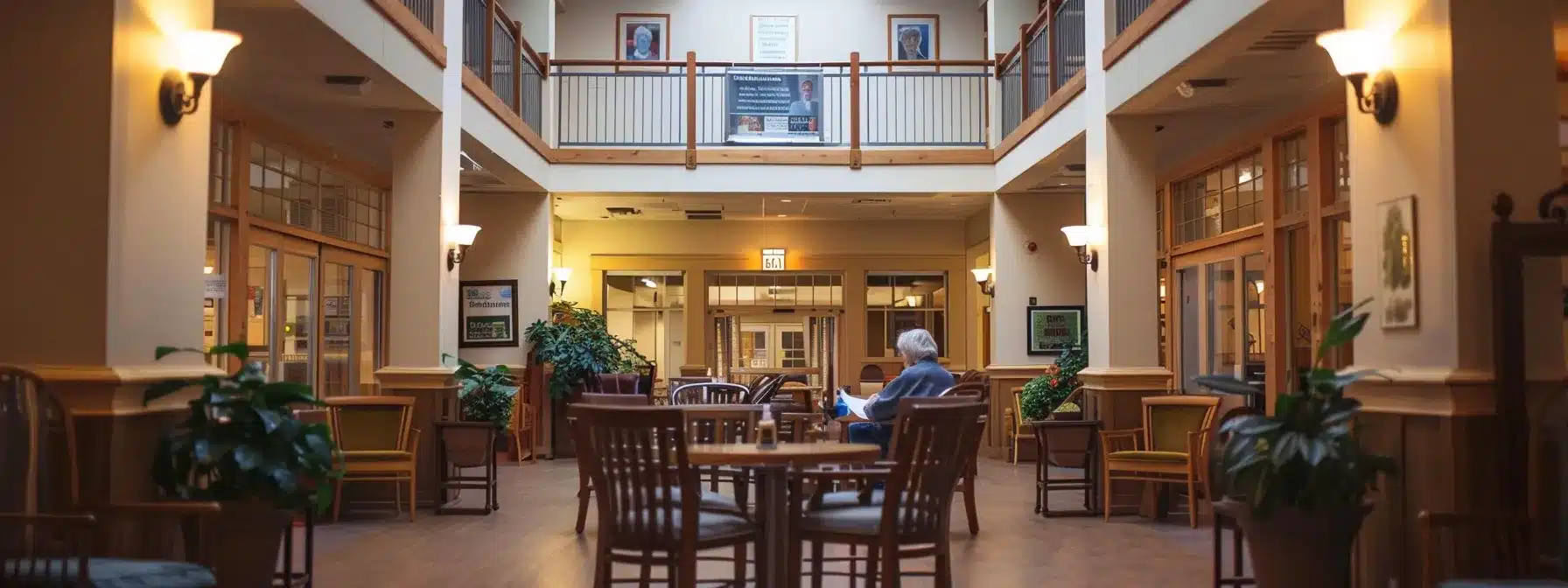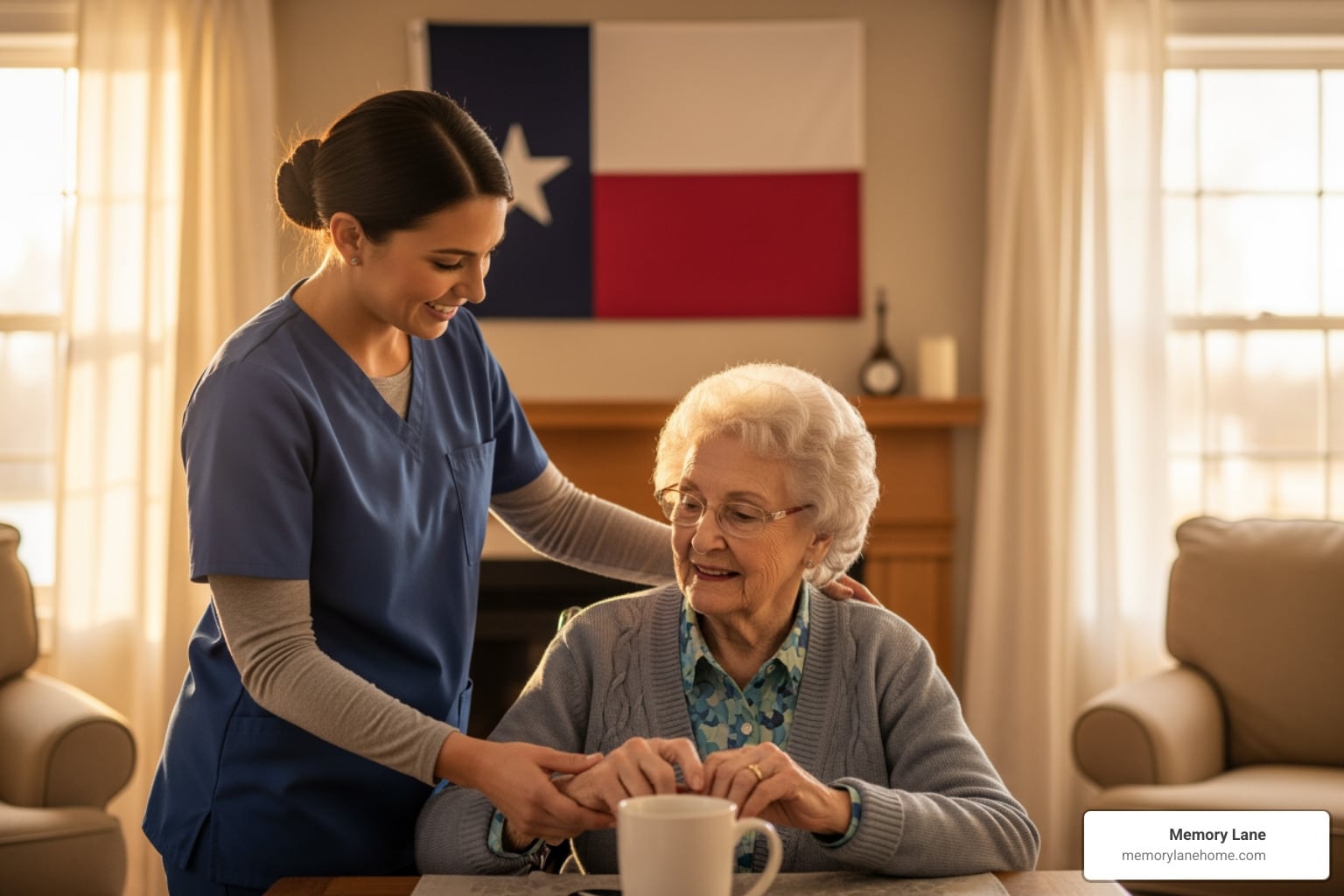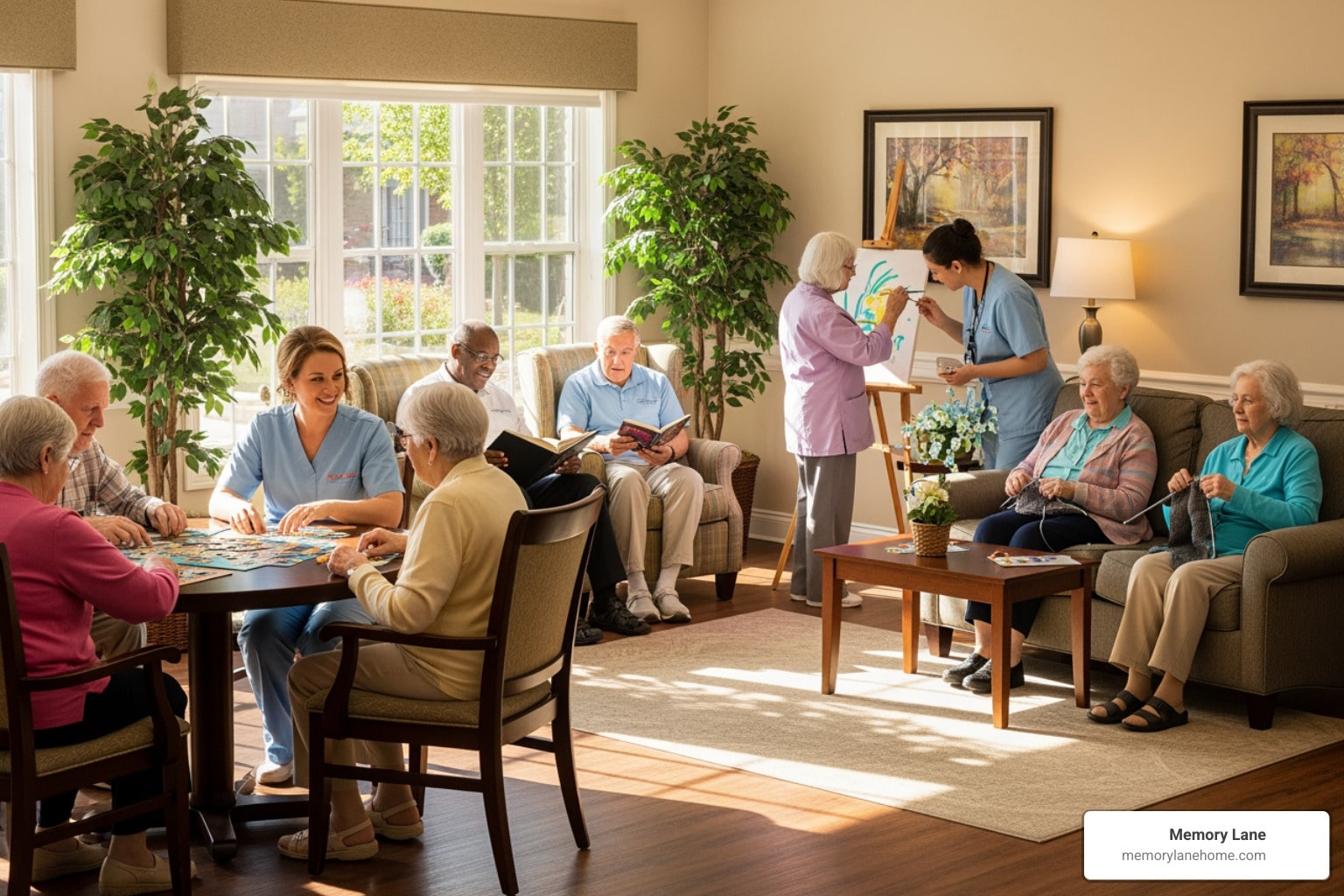Discover Alzheimer's care Texas: early signs, memory care options, state resources, costs & prevention strategies for families.

Navigating Affordable Dementia Nursing Homes in Michigan
Comprehensive Table of Contents for Affordable Dementia Nursing HomesTable Of Contents:
- **Affordable Dementia Nursing Homes in Michigan: Key Insights for Caregivers**
- Key Takeaways
- Key Takeaways
- Understanding the Costs of Affordable Dementia Nursing Homes in Michigan
- Financial Assistance Options for Affordable Dementia Care in Michigan
- Types of Affordable Dementia Nursing Homes in Michigan
- Assessing Quality in Dementia Nursing Homes
- Resources for Caregivers of Individuals With Dementia
- Understanding Legal and Regulatory Issues
- Crafting a Smooth Transition to Nursing Home Care
- Frequently Asked Questions
- Conclusion
**Affordable DementiaNursing Homes in Michigan: Key Insights for Caregivers**
Do you face challenges finding affordable dementianursing homes in Michigan that truly meet your loved one’s needs? This article highlights key insights, including cost understanding and financial assistance options for dementia care in Michigan. It also explores types of nursing homes and quality assessment measures. Readers gain practical information to ease the decision-making process and overcome common obstacles.
Key Takeaways
- memory lane assisted living offers personalized dementia care in a home-like setting
- the facility focuses on practical routines and clear transition guidelines
- family caregivers receive support in managing the admission process
- consistent care practices help residents feel secure during change
- expert guidance ensures care plans meet each individual’s unique needs

The organization provides affordable solutions for dementianursing care in Michigan while offering personalized attention that meets unique needs of individuals with disease challenges.
The facility ensures that residents receive quality first aid and practical care methods using a person-centered model that respects their personal history and well-being.
The care team directs energy toward implementing daily routines that ensure comfort and consistency, supporting both residents and their caregivers as they experience the transition together:
- Consistent attention to daily needs
- Access to first aid protocols on site
- Strong support from a dedicated organization
The approach delivers practical insights designed to simplify decision-making for caregivers, emphasizing care that reduces complications associated with disease and promotes overall health.
The key points have been laid out cleanly. The next section unravels the real cost behind affordable dementianursing homes in Michigan, offering a clear picture for those seeking care.
Understanding the Costs of Affordable DementiaNursing Homes in Michigan

The analysis covers factors influencing nursing home costs in Michigan, comparing care options and regional pricing differences. It clears confusion by explaining how cash affects fees, how geriatrics impacts services, the role of the michigan department of health and human services, and the relevance of support from initiatives like a local food bank.
Factors Influencing Nursing Home Costs in Michigan
Nursing home costs in Michigan are influenced by a range of factors that affect overall affordability and quality of care for individuals with dementia. The cost evaluation involves considerations of accessibility for residents, data from a comprehensive database, and the level of credit provided by specialized physicians to ensure that services are tailored to meet unique care requirements within the evolving healthcare landscape.
Insurance coverage, state funding, and regional financial factors also play a role in shaping the costs associated with long-term care. Practical examples show that careful budgeting, consultation with a knowledgeable physician, and analysis of a reliable database can offer caregivers clear insights, helping them navigate the financial landscape with confidence.
Comparing Costs Among Various Care Options
The facility offers a clear view of the price differences between varied care options, allowing caregivers to assess the brain impact and health risk factors that accompany each choice. The insight provided by such an evaluation enables families to understand the ratio of care quality to cost, ensuring they select a solution that minimizes the risk of complications like allergy incidents and other health challenges.
In crafting cost comparisons, the approach emphasizes practical examples that combine financial specifics with health considerations. Experts note that when evaluating the price, families can prioritize options that maintain excellent attention to the brain and body, reducing potential risks associated with underlying health conditions such as allergies.
Regional Pricing Differences for Dementia Care
The affordability of memory care facilities in southeast michigan varies by location, as regional price variations help determine care expenses. Experts note that a village-like setting offers a distinct environment compared to larger memory care homes, and pricing differences ensure that each patient receives targeted services aligned with their needs.
In southeast michigan, regional pricing differences reflect local economic conditions and service levels at memory care facilities. Practical examples indicate that counseling and transparent cost analysis enable caregivers to select a village that accommodates the patient’s specific health requirements while maintaining affordability.
Costs shape choices and spark challenges for families facing dementia care. Clear financial paths now appear, detailing aid available to ease these burdens.
Financial Assistance Options for Affordable Dementia Care in Michigan

This section covers Medicaid and Medicare programs, other funding sources for dementia care, and community nonprofit assistance. It details how external support can ease the burden of rising inflation and meet residents’ behavior, hygiene, and bathroom needs while supporting their activities of daily living. These practical insights provide caregivers clear options for effective dementia care funding.
Overview of Medicaid and Medicare Programs
Medicaid and Medicare programs offer significant assistance for dementia nursing homes in Michigan, providing caregivers with resources for specialized alzheimers care while addressing concerns about medication management and overall safety. These programs work alongside employee benefits and life insurance options to support families in making informed financial decisions during challenging transitions.
The support from these models helps ensure services meet the highest quality standards in resident care, such as careful oversight of medication and personalized alzheimers care practices. By combining expert guidance with accessible funding, caregivers and their families can feel more secure about the care their loved one receives while benefiting from additional employee benefits and life insurance assistance.
Other Funding Sources for Dementia Care
The facility highlights additional funding sources that support dementia care by aligning private foundations and local initiatives with a focus on relieving the financial burden for the caregiver. The program ensures that consent is obtained from all parties while addressing specific needs, such as diet management, through resources that sometimes extend to regions like Ottawa for specialized support.
Local organizations frequently offer financial grants that assist in alleviating costs associated with dementia care, creating practical avenues for caregivers seeking relief. This approach, reinforced by expert reviews and practical examples, simplifies decision-making for caregivers while ensuring that all support adheres to strict consent protocols and includes guidance on maintaining a balanced diet.
Community Resources and Nonprofit Assistance
The community offers valuable assistance through local nonprofits that partner with memory care units in Grosse Pointe, providing practical support for families navigating dementia care. These organizations help caregivers identify supplemental security income options that can ease financial burdens, while expert consultations address concerns such as weight loss and nutritional needs during the care journey, ensuring that each resident receives personalized attention.
Local initiatives work closely with caregivers, offering professional guidance on effectively utilizing community resources and available funding sources. Such partnerships generate genuine interest in innovative support strategies, allowing families to access services that improve overall care quality and help manage the practical challenges associated with long-term care planning.
Money can relieve some weight off the shoulders of families trying to find care. The next section lays out shelter options that fit within these budgets without compromising quality.
Types of Affordable DementiaNursing Homes in Michigan

In Wisconsin, caregivers receive expert insights into affordable dementianursing homes. The discussion outlines features of in-home care services designed to reduce stress, benefits of adult day care programs incorporating art therapy, and assisted living facilities focused on specialized therapy. This overview sets the stage for practical guidance in achieving quality care.
Features of in-Home Care Services
The in-home care services offer personalized attention that meets the needs of family caregivers while aiming to improve the quality of life for residents. The approach emphasizes practical methods to manage the cost of living and includes nutrition education to support balanced meals. This method provides actionable insights that help caregivers feel confident in their choices.
These services combine specialized care with flexible routines suited for residents who require tailored support. The focus on nutrition education and cost of living considerations ensures that caregivers are aware of potential tax credit benefits, making the arrangement a practical option. The model addresses everyday challenges and assists family caregivers in making informed decisions for improved wellness.
Benefits of Adult Day Care Programs
Adult day care programs provide a practical solution for seniors with dementia by offering structured activities that help preserve memory through engaging exercises and social interactions. These centers ensure caregivers receive relief from responsibilities such as managing regulatory affairs, power of attorney issues, and fee scheduling, while also addressing any unique concerns a veteran family member may have:
- Structured social engagement
- Practical support with legal and financial matters
- Specialized attention to memory retention
These services offer caregivers a balanced approach to care by incorporating clear guidance on maintaining regulatory affairs and managing power of attorney concerns, while ensuring that the fee for such services remains predictable. The model emphasizes practical examples that highlight daily interactive sessions aimed at reducing stress and providing a positive environment for residents, including veterans.
Assisted Living Facilities Focused on Dementia Care
Assisted living facilities focused on dementia care offer practical and affordable options that integrate essential features like memory care facility services, managed care protocols, and equity in service delivery. Residents receive personalized routines and consistent support, which address the unique challenges associated with dementia while providing peace of mind to caregivers in areas such as Fort Gratiot and Indiana.
These facilities combine first-hand expertise and hands-on practical examples to build an environment that promotes independence and overall well-being. The approach ensures care is aligned with current managed care standards and ethical practices, ensuring that families find a trusted partner during difficult transitions without sacrificing quality or equity in service delivery.
Affordable care in Michigan has its own rugged truths. Now, a close look at the quality of these homes unfolds before us.
Assessing Quality in DementiaNursing Homes

Key factors include facility ratings, inspection results, and family feedback that guide caregivers in selecting a care facility. These insights focus on personalized aid, property care nuances, and options like reverse mortgage for long-term benefits. Examples from wyoming and illinois communities support informed decision-making in affordable dementianursing homes.
Key Considerations When Selecting a Care Facility
When selecting a care facility, it is important to consider the range of activities offered, such as music therapy sessions in the courtyard, to support mental and emotional health. Insight into the facility’s insurance policy and assisted living options can help caregivers make a practical decision:
Evaluating quality in dementianursing homes requires a strong knowledge base of care practices and facility amenities. A facility that integrates practical elements like music therapy, well-maintained courtyards, and clear insurance policy details is more likely to deliver a level of assisted living that directly meets caregiving needs.
Facility Ratings and Inspection Results
The facility ratings provide caregivers with a clear measure of quality by summarizing routine inspections and outcomes related to fire safety and stimulation programs. These ratings often include detailed inspection results that affect service income projections and indicate strengths in areas such as respite care provision and retirement planning support.
The inspection results offer actionable insights that inform decisions on care options; these results also motivate improvements in service delivery and encompass essential aspects such as fire safety protocols, effective stimulation activities, reliable income stability, quality respite care, and retirement support:
- Fire safety protocols
- Effective stimulation activities
- Reliable income stability
- Quality respite care
- Retirement support features
Importance of Family Feedback and Experiences
Family feedback plays a critical role in the evaluation of affordable dementianursing homes, offering firsthand insights into the quality of health care and emergency readiness provided to residents. Such experiences ensure that the rights of citizens are respected and serve as a valuable resource for caregivers when making informed decisions.
Real-life testimonials from families help highlight areas where a facility’s approach to dementia care can be improved, guiding a practical evaluation of overall service quality. Detailed accounts of emergency response and ongoing health care quality ensure that family perspectives are central to maintaining effective and respectful care environments.
Quality assessment guides care just as hands-on support guides daily life. Practical advice for caregivers follows, offering clear insight and steady comfort.
Resources for Caregivers of Individuals With Dementia

A directory of affordable nursing home providers in Michigan, support networks for family caregivers, and educational workshops on dementia care strategies offer practical guidance. These resources cover diverse topics such as waiver options, south carolinapolicy updates, meal planning, and mortgage advice, ensuring caregivers have the expertise needed for effective decision-making and quality long-term care management.
Directory of Affordable Nursing Home Providers in Michigan
The directory provides caregivers with a practical tool to locate affordable nursing home providers in Michigan that prioritize specialized dementia care. The resource includes detailed listings that assist caregivers to conduct thorough research on each provider’s offerings, such as support with health insurance and guidance on maintaining a healthy diet, ensuring families receive valuable insights tailored to their needs.
The listing also features practical information on services that enhance socialization and support, including options for sick leave arrangements for staff to ensure uninterrupted care:
- Provider contact information
- Service descriptions and amenities
- Reviews on socialization programs and dietary support
- Details on health insurance partnerships
This detailed directory empowers caregivers with clear, actionable insights to support informed decision-making when selecting the best care options in Michigan.
Support Networks for Family Caregivers
Family caregivers frequently rely on peer groups and local organizations to find valuable insights on selecting a reliable memory care home while understanding medicaid eligibility and ensuring that regulation policies are met. These networks offer practical resources on managing financial concerns like property tax adjustments and services available even in regions such as north dakota:
- Access to updated medicaid guidelines
- Information on memory care home standards
- Guidance on regulation compliance
- Support with property tax queries
- Local resource connections from north dakota areas
Such support networks provide family caregivers with consistent advice and real-life examples that simplify the decision-making process while maintaining quality care standards. This approach helps families overcome practical barriers, ensuring they make informed choices that deliver lasting comfort and support.
Educational Workshops on Dementia Care Strategies
Educational workshops on dementia care strategies offer caregivers hands-on training in primary care practices and nursing management. The sessions incorporate insights from the University of Michigan experts and real-life inspection outcomes to help caregivers understand practical routines and ensure that services like meals on wheels align with individualized needs.
Workshops provide actionable guidance in a clear, straightforward manner, enabling caregivers to apply proven techniques in daily care routines that reduce stress and improve patient comfort:
- Best practices in nursing and primary care
- Review of latest inspection results
- Case studies from the University of Michigan
- Integration of meals on wheels programs
Caregivers gain strength from the support they find in these resources. Now, clear rules and laws set the stage for informed choices in care.
Understanding Legal and Regulatory Issues

Clear resident rights, compliance standards, and methods for addressing poor care practices form the backbone of legal oversight. This section examines the asset of resident rights, regulations in memory care services, poverty influences on care, foster care integration, and proper eating protocols. Each topic offers practical insights to ensure transparency and accountability in Michigan’s affordable dementia nursing homes.
Rights of Residents in Nursing Homes
The rights of residents in nursing homes focus on ensuring dignity and respect in every aspect of care. The regulations help maintain a standard where elderly care is administered properly, with regular payroll settlements and attention to cognition, reflecting practical needs of residents in kent areas:
Residents hold the right to clear and accountable practices that ensure their welfare in assisted living environments. This approach underscores the value placed on dignity through comprehensive elderly care measures, emphasizing the role of payroll systems in supporting staff and the importance of cognition-focused activities to maintain overall well-being.
State Compliance Regulations for Dementia Facilities
The state compliance regulations for dementia facilities set forth clear standards that nursing homes must meet to ensure compassion for every resident. These guidelines emphasize proper access to physical therapy, regular ombudsman reviews, and available legal aid to address concerns efficiently.
Regulatory oversight also monitors the implementation of care practices to safeguard residents’ rights and support practical interventions in nursing home settings:
Reporting and Addressing Poor Care Practices
The facility ensures that any concerns regarding poor care practices are addressed immediately by providing clear guidance on how to submit a complaint within the appropriate zip code, making sure that every report results in a thorough review. The organization embraces a philosophy that prioritizes transparency, ensuring that residential care is monitored closely and that concerns about nutrition are resolved efficiently through practical measures and regular evaluations at the memory lane home.
The team works swiftly to report and resolve care issues by documenting each instance accurately, using precise details such as zip code data and specific care observations. This method supports a philosophy where residential care receives rigorous attention, and any lapses in nutrition or overall practices are promptly investigated and corrected, ensuring that every resident at the memory lane home enjoys a safe and supportive environment.
Legal matters are now clear, setting the stage for the next step. The narrative now turns to planning a smooth move into nursing home care.
Crafting a Smooth Transition to Nursing Home Care

This section covers preparing your loved one for the transition, involving family in care decisions, and setting up logistics for admission and care plans using expert guidance from a registered nurse. It details identifying emotional support strategies, ensuring a comfortable shower routine, finding a place for mom that holds a proper license, and establishing a stable routine in a new environment.
Preparing Your Loved One for the Transition
Officials recommend that families begin preparing their loved one by discussing the upcoming changes and providing clear information about what to expect in the assisted living facility. The facility team offers personalized planning and practical steps to ensure a smooth transition:
Experts in dementia care advise that families gradually adjust daily routines to incorporate practices found in the facility, ensuring a balanced approach to daily living. The staff at the assisted living home collaborates with caregivers to offer targeted tips, making the transition process straightforward and fostering a supportive environment.
Involving Family in Care Decisions
Involving family in care decisions helps ensure that each step of the transition is tailored to the specific needs of the resident. The organization encourages open dialogue among family members and care practitioners to clarify each detail and maintain a constant focus on personalized dementia care.
Family involvement is recognized as a critical factor in forming effective care plans that highlight the unique history of each resident. This practical approach supports caregivers by offering clear guidance and actionable insights, ensuring that every decision strengthens the bond and trust between family and the assisted living home.
Setting Up Logistics for Admission and Care Plans
Setting up logistics for admission and care plans begins with a thorough discussion between the facility team and family members to outline all necessary steps clearly. This process involves organizing essential documents, scheduling consultations with experienced care coordinators, and establishing a care plan that directly addresses the resident’s unique needs.
The team works closely with caregivers to create a practical admission timeline while ensuring that all care details are clearly communicated. This structured approach supports a seamless transition to the facility and provides caregivers with clear insights into future care routines.
Identifying Emotional Support Strategies During the Move
The care team at Memory Lane Assisted Living understands that transitioning to a new care setting can be challenging, and they provide clear strategies to support emotional well-being during the move. These strategies include scheduled counseling sessions, routine check-ins, and peer support groups designed to minimize stress and promote comfort:
The facility’s approach emphasizes clear, actionable steps that assist caregivers and their loved ones in adapting to new environments while receiving personalized care. This practical method, supported by experienced professionals, reinforces a commitment to quality dementia care that enhances resident confidence during significant life changes.
Establishing Comfort and Routine in New Environments
The care team at Memory Lane Assisted Living emphasizes the value of setting up predictable routines and familiar environments for a smoother transition. Practical actions, such as creating a consistent daily schedule, help residents in affordable dementianursing homes in Michigan feel secure and supported during this significant change.
Residents benefit from practical measures that promote comfort and routine, reducing uncertainty during their move. The facility offers clear guidance on setting up a structured environment, including:
- Establishing fixed meal times
- Organizing daily activity schedules
- Creating personalized care plans
This approach ensures that caregivers have actionable steps to create an environment where residents thrive in their new setting.
Frequently Asked Questions
What are the common costs of affordable dementianursing homes in Michigan?
Affordable dementia care in Michigan typically ranges from $4,000 to $8,000 per month, depending on room type and specialized services. Memory Lane facilities offer personalized care designed for families in Ypsilanti and the greater Ann Arbor area.
How do financial assistance options work for dementia care in Michigan?
Financial support in Michigan may include state programs, insurance, or veteran benefits to reduce dementia care expenses. Each option helps families manage costs while providing person-centered care in assisted living settings.
What types of affordable dementianursing homes exist in Michigan?
Memory Lane Assisted Living provides affordable dementianursing focused on person-centered care, bridging Adult Foster Care, Memory Care, and home comforts in Michigan for families in Ypsilanti and the greater Ann Arbor area.
How is quality assessed in dementianursing homes?
Quality is measured by the consistency of personalized memory care, staff expertise, regulated standards, and regular assessments that focus on the well-being and specialized support provided to residents with cognitive impairments.
What legal regulations affect affordable dementianursing homes?
Legal regulations affecting affordable dementianursing homes include state licensing, federal funding guidelines, and health and safety standards. These rules ensure that facilities like Memory Lane Assisted Living deliver quality, person-centered care in a secure environment.
Conclusion
Affordable dementianursing homes in Michigan provide tailored care that meets both residents’ practical needs and families’ expectations. The detailed insights emphasize everyday routines, cost transparency, and professional support as vital components of high-quality care. The practical guidance helps caregivers confidently select options that promote a balanced and secure living environment. This focused approach reinforces the significance of resident-centered care in enhancing overall well-being.


